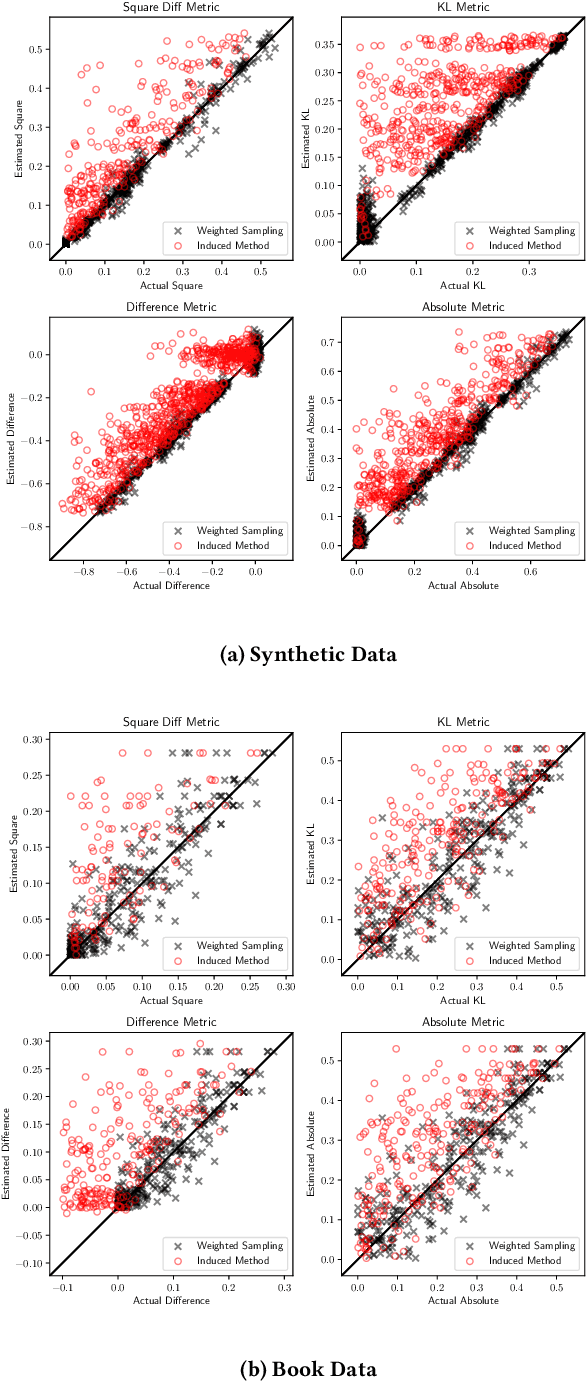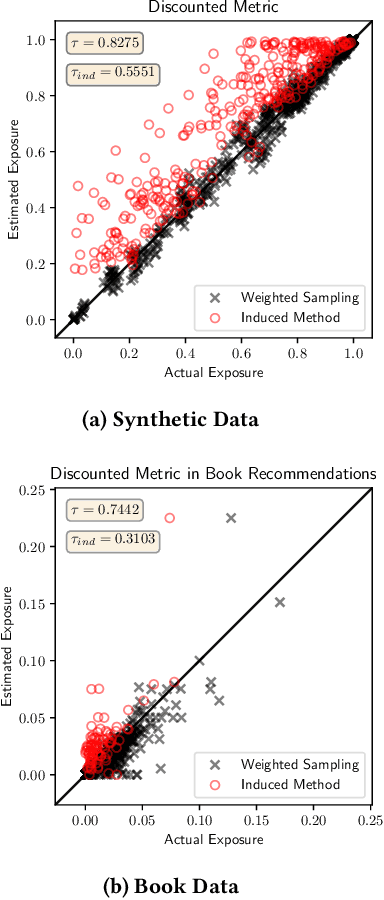Estimation of Fair Ranking Metrics with Incomplete Judgments
Paper and Code
Aug 11, 2021



There is increasing attention to evaluating the fairness of search system ranking decisions. These metrics often consider the membership of items to particular groups, often identified using protected attributes such as gender or ethnicity. To date, these metrics typically assume the availability and completeness of protected attribute labels of items. However, the protected attributes of individuals are rarely present, limiting the application of fair ranking metrics in large scale systems. In order to address this problem, we propose a sampling strategy and estimation technique for four fair ranking metrics. We formulate a robust and unbiased estimator which can operate even with very limited number of labeled items. We evaluate our approach using both simulated and real world data. Our experimental results demonstrate that our method can estimate this family of fair ranking metrics and provides a robust, reliable alternative to exhaustive or random data annotation.
 Add to Chrome
Add to Chrome Add to Firefox
Add to Firefox Add to Edge
Add to Edge